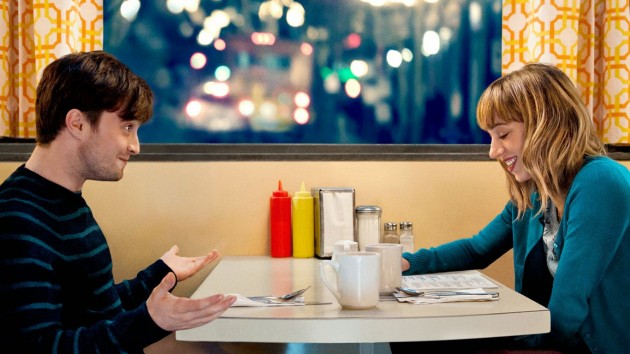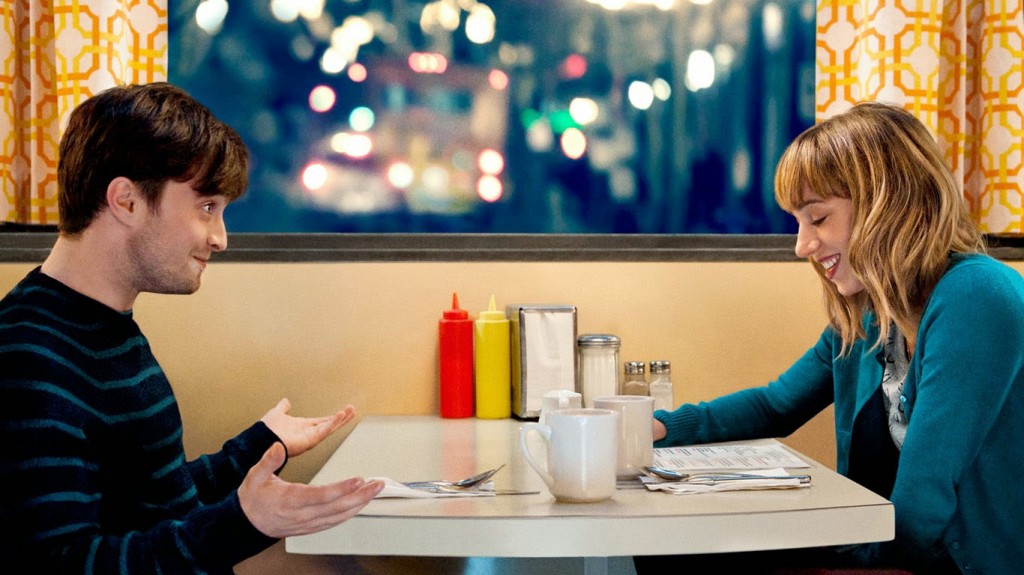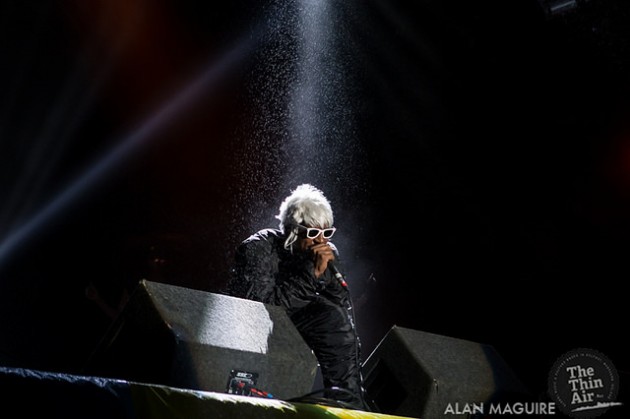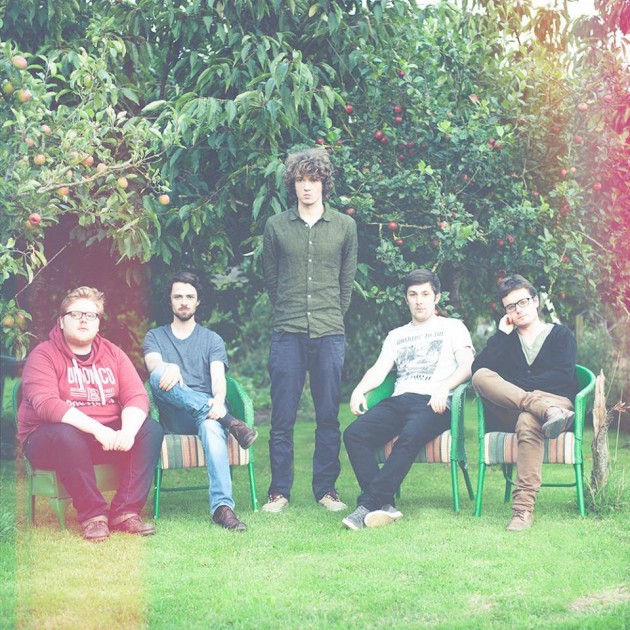Hogwarts expatriate Daniel Radcliffe is the headliner here, but you might also recognise Zoe Kazan, one half of the meet-cute not-couple in Canadian-Irish production What If (retitled from The F-Word). She wrote Ruby Sparks (2009), a fun and acerbic satire of the Manic Pixie Dream Girl trope (an increasingly problematic term) in which she was the dreamt-up effervescent love interest for Paul Dano’s brooding, needy novelist. It is something of a pity, then, to see her taking on much more unchallenging genre material here. Adapted from T. J. Dawe and Michael Rinaldi’s Canadian play Toothpaste and Cigars, and directed by Michael Dowse (who did the winning The Goon), What If puts Radcliffe’s med-school dropout Wallace and Kazan’s horn-rimmed animator Chantry (it even sounds like ‘Ruby’) together for light-hearted and amicable romantic comedy that isn’t quite as smart as it thinks it is. The two meet at a party and instantly like each other, but Chantry’s got a long-time boyfriend (I Give It A Year’s Rafe Spall). So they stick to friends and protest that it’s all platonic. Can you guess what happens next?
In a small hat tip to rom-com canon, Wallace and Chantry run into one another at a screening of The Princess Bride, from When Harry Met Sally director Rob Reiner. It’s the least the film could do. It’s saner and less obnoxiously stupid than the average Kate Hudson abomination, but it’s still curdled in rom-com cliché. Wallace and Chantry both have slightly crazy best friends who act as a will-they-won’t-they Greek chorus (Adam Driver doing a less manic version of his Girls character). Chantry flies to Dublin to surprise her long-distance other half, and discovers him tipsily embracing a colleague. Chantry’s dress gets stuck and Wallace has to intervene (eyes closed!) in the dressing room. There’s even a scene where Wallace runs to the airport (twice). It’s a bit of a piss-take for sure, but, you know, he’s still running to the airport.
The well-worn narrative beats are wrapped up in a slightly self-aware, smart-aleck sensibility. Wallace and Chantry both communicate via an affected banter that I can only call ‘cutespeak’, a by-product of the story’s theatrical origins and the dialogue conventions of the ‘smart rom-com’. It’s particularly bad with Wallace, although that might be down to Radcliffe’s English accent: he comes off like an eager, over-articulate graduate student at a party. This is the default mode for the friends/lovers, for whom the script has too much affection. Neither really gets the chance to be anything other than smart-funny, which makes it really difficult to buy their personalities as resembling anything real. Even in Nora Ephron and Reiner’s archetypal genre example, both Harry and Sally sometimes came off as annoying, or needy, or full of themselves, or even sexy, like the way real people do (at least within the hyper-real standards of the genre). Heck, for a good portion of the film they openly dislike each other.
The film ends with Wallace and Chantry in the same place as where they met, literally and metaphorically: a friend’s kitchen, rearranging word tiles on the fridge to make quirky little poems. From the get-go, they are obviously meant to be together. They are two versions of the same character (her friends jokingly refer to him as the male Chandry or ‘Mandry’), they speak the same dialectic and they are equally indulged by the film. Neither really does anything that demonstrates their worthiness of love, and both go through the story not really making decisions, or experiencing the consequences of the decisions they have already made. In the end, Chantry doesn’t even have to decide between her boyfriend or Wallace. They both just get what they want, because that’s how fairytales, even the wordy ones, work. Conor Smyth







